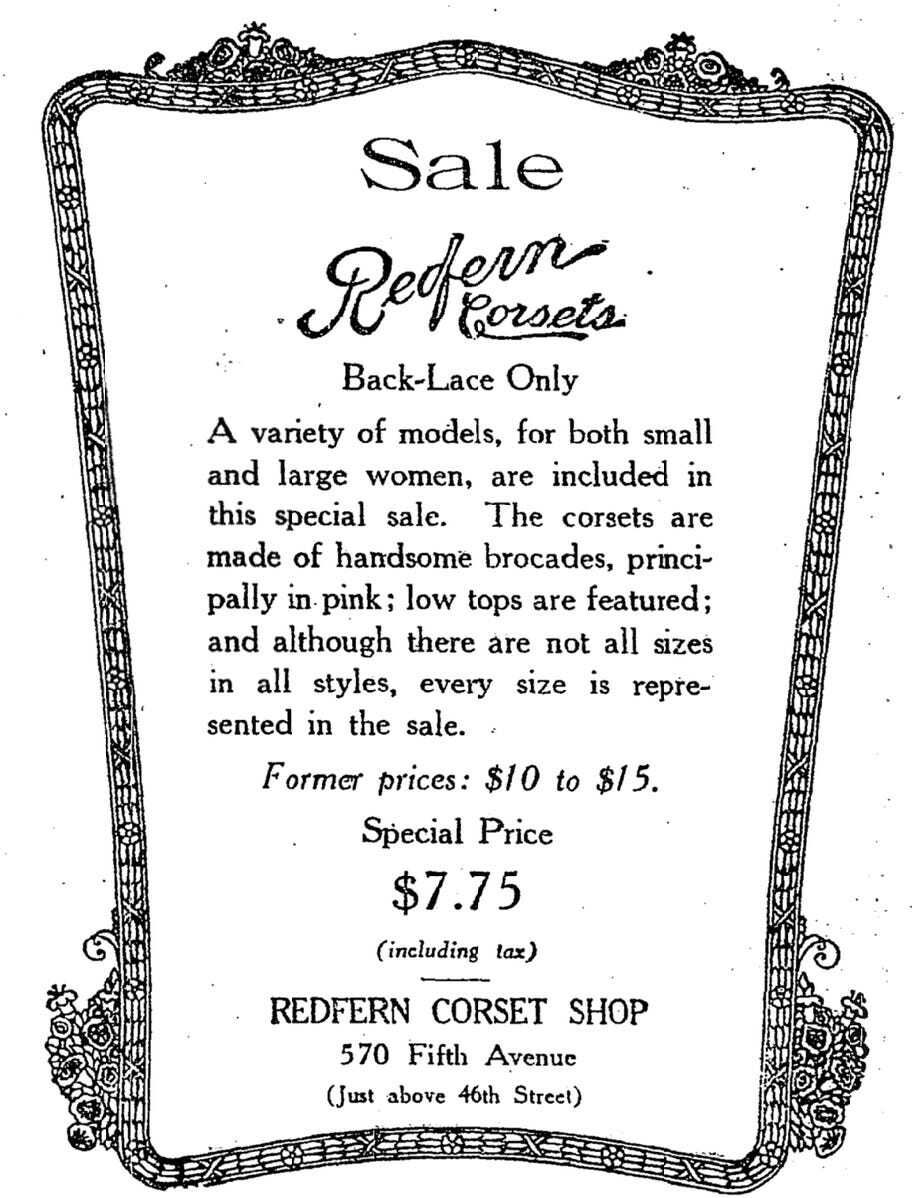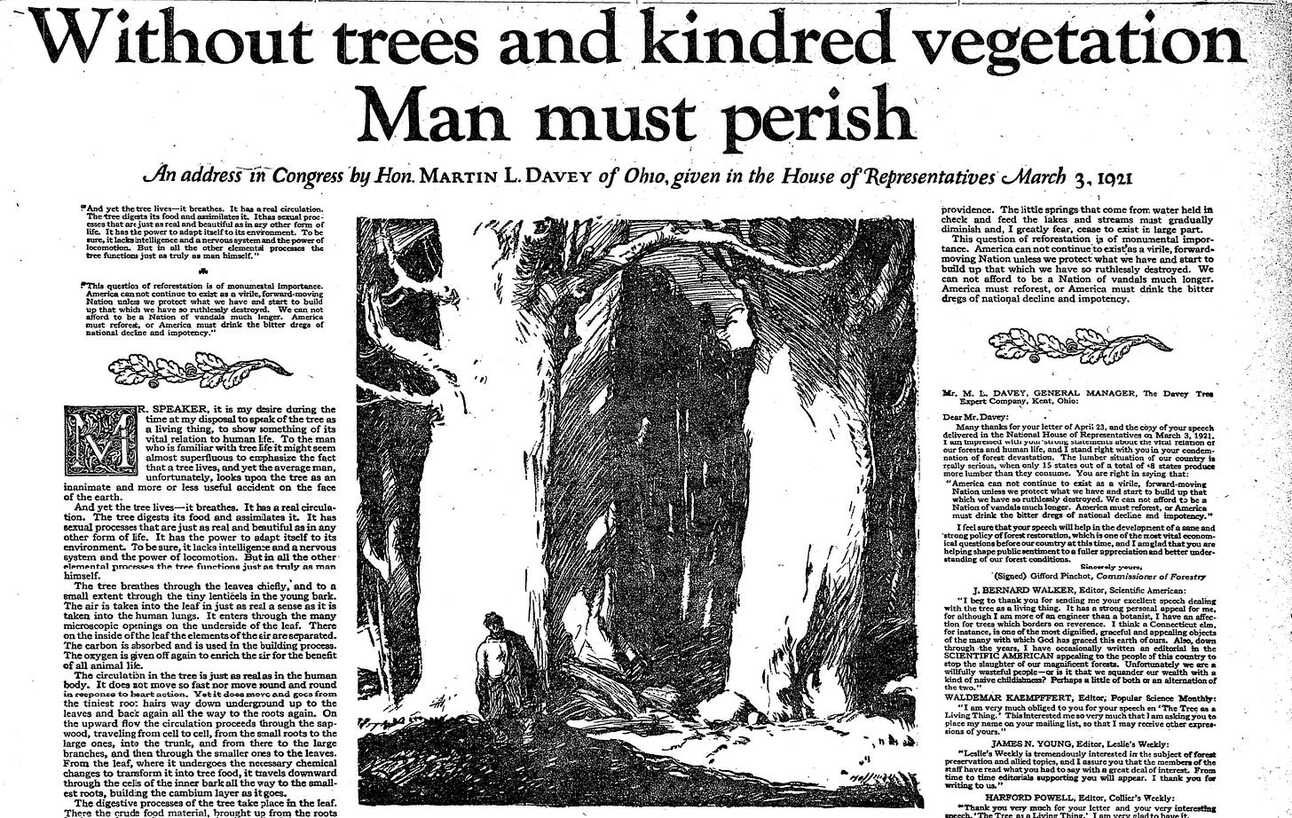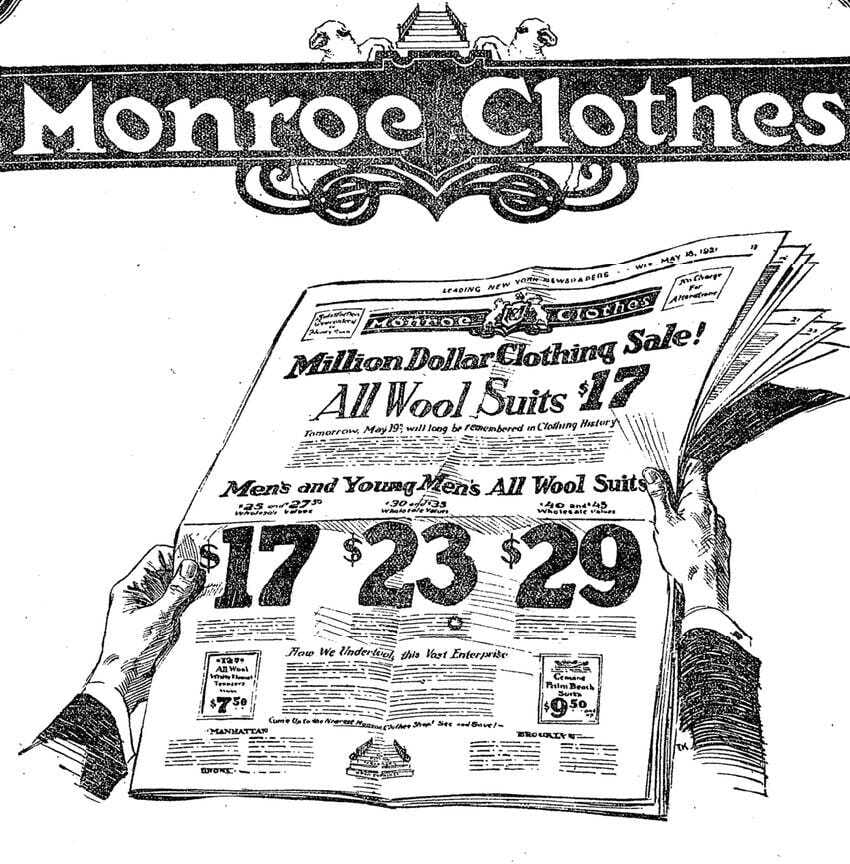- Strange Times
- Posts
- Strange Times 145: Public Puffing
Strange Times 145: Public Puffing
Exceptionally important news! Preordering Westside Lights is guaranteed* to solve all your problems and lay the groundwork for eternal happiness!
(*: Guarantee not guaranteed.)
Today we have women accused of impropriety and a woman accused of murder. Sneak a furtive smoke on…
May 25, 1921
The executive secretary of the Federated American Engineering Society declares: “The American public is paying a tremendous subsidy through waste in changing styles for women.”
The Weather: Cloudy and warmer today, probably showers; Thursday, cloudy and warmer; fresh southwest winds.

Behold! The patriarchy in action!
Women may smoke in the New York Athletic Club. That privilege is to be extended to them, both in the Manhattan club house and at the organization’s Summer home on Travers Island.
Behind closed doors and at the end of a debate that resounded through the corridors, that question was settled last night at a special meeting called to deal with it. The vote was 187 for smoking and 134 against, the ayes winning so decisively that it was hoped dissension over the propriety of the practice would be allayed for all time.
It was because of this disagreement that the meeting was regarded as one of the most important the club ever held. It was called in response to a resolution signed by fifty members calling upon the organization to annul the ban which had relegated the use of cigarettes by women guests to furtive inhalations in obscure corners after public puffing had been definitely forbidden.
The signers of the resolution believed that since it had become the custom of other social organizations to allow women to be their own judges of the question of taste involved, their own no longer should attempt to act as a censor over the behavior of women, most of them wives of members, who only enter the portals of the club on Sunday nights and on special occasions by special invitation. Another argument for removing the ban, they thought, was the prevailing practice in clubs used exclusively by women of allowing their members to decide for themselves whether they should smoke.
The resolution calling the special meeting was circulated and signed after protests of the “reactionaries” had led the Board of Governors last January to put an end to an indulgence which they thought unseemly. Both sides had rallied their supporters for a supreme effort and a half dozen speakers presented the case for each.
William McAllister Mills, who became President of the Club about the time the governors acted, presided. It was said he ruled in neutral temper, refusing to be a protagonist of either faction. Proponents of definitely establishing the smoking privilege, it was said, hurled the charge of being blue law advocates at the heads of their opponents and warned that attempts to bar women from smoking in the end would lead to the men, too, puffing only slily and in the face of “verboten” signs. They cited the custom of all fashionable hotels of permitting women to do as they chose in the matter and insisted women might as well smoke at social gatherings since they did it at home anyway.
When the antis got their inning they cited as precedent the fact that women had not smoked by permission in the club in fifty years and asked “why now?” They inveighed against the habit as unhealthful and called it “unladylike,” and dwelt upon the effect on women who were trying to raise their children to be “ladies and gentlemen.” The whole idea was preposterous!
Then they took a vote and the victors gave a mighty cheer and hurried home to tell their women folk.

From the very depths of the past surfaces the tragic saga of Ethel Hutchins Nott, first covered in this newsletter way back in 2017, when an accused murderer gave her a smooch, was called a killer, and was sentenced to hang.
BRIDEPORT, May 24.—Five jurymen had been selected to try Mrs. Ethel Hutchins Nott for murder when court adjourned late today. They were Abner Keeler, aged 53, a bachelor farmer of Wilton, the first to be definitely chosen; Albert G. Root, aged 60, a married man with two children and a Danbury jeweler; Dennis Hull, 59, an insurance agent of Norwalk, unmarried; James S. Osborne, 33, a New Canaan farmer, married, with two children, and Fred B. Coleman, a Norwalk newsdealer, 54, married with seven children.
Mrs. Nott, pale but firm of step, appeared to be in better health than when she appeared as a witness for the State in the trial of Elwood Wade, her confessed intimate, last Fall for the murder of her husband. Clad in widow’s weeds, she kept her head bowed, except when she lifted her eyes to scan the faces of the jurymen, and had a black-bordered handkerchief ready for use.
Tears started to her eyes at every reference to the murder of her husband last August and the hanging last Friday of young Wade. Whenever Prosecutor Homer S. Cummings, former Democratic National Chairman, mentioned the name of Nott or Wade, Mrs. Nott would tremble violently and cry softly. She was visibly affected when her two little children and her aged mother kissed her and said good-bye at the close of the session.


